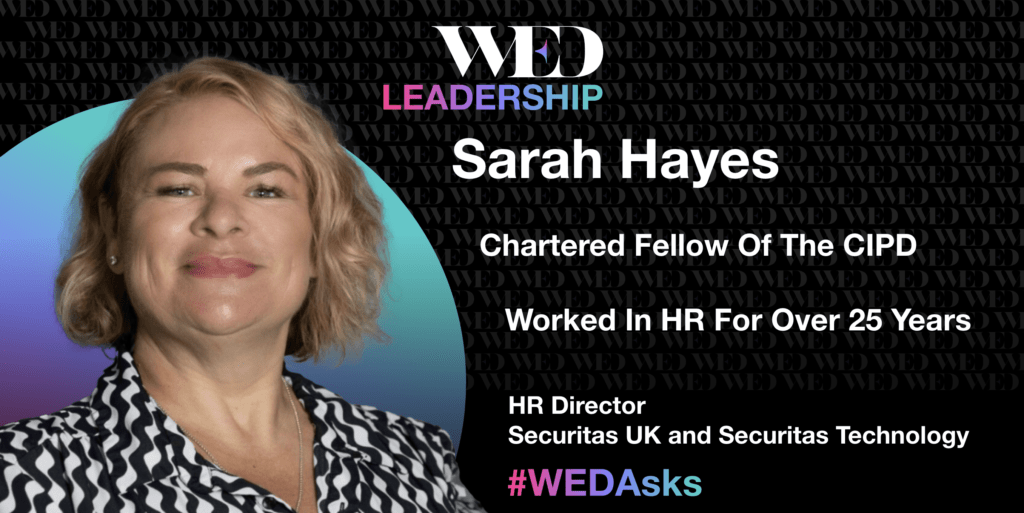
We are honoured to present an #WEDAsks – Leadership interview with Sarah Hayes, HR Director for Securitas UK and Securitas Technology. With over 25 years of experience in HR and as a fellow of the CIPD, Sarah brings a wealth of knowledge and a unique perspective to the table. As a mother and an individual with ADHD, her journey in the corporate world is not just inspiring but also a testament to the power of resilience and adaptability.
In this candid interview, Sarah shares her insights on leadership, the challenges and triumphs of her career, and her thoughts on gender equality in the workplace. Her journey from a council house upbringing to achieving a Master’s degree and becoming a director is a story of breaking barriers and redefining possibilities.
Continue reading to delve into Sarah’s experiences and learn from her journey of growth, leadership, and empowerment.

Tell us about yourself, your background, and your current role.
I have worked in HR for over 25 years, I am a fellow of the CIPD, a mum to a 14-year-old and I am ADHD. My current role is HR Director for Securitas UK and Securitas Technology, I am responsible for leading an HR team for 9000 employees in the UK.
Did you ever sit down and plan your career?
No, being ADHD means I am not great at looking into the future. My career has been what it is because I am always keen to learn more and do more. I moved into HR from a recruitment role, I instantly loved HR, the feeling of making a difference to peoples working lives really resonated with me, it gives me a purpose. Along the way, I have had some fantastic managers and mentors that have given me the confidence to move forward. I have also been supported by businesses to complete education and development along the way.
How do you measure success for you as a leader?
Great question, I think if the people that work for me are happy, are comfortable to challenge me and are delivering in their role then I am doing something right. We have data to see where we are performing and doing well, but gauging the feeling is also an important element for me. In terms of the wider population in our business, if I am driving change, that is improving the lives of our people, then as a people leader I am successful. If I can be visionary, influence my board colleagues and implement then I am a successful leader. Seeing the number of people across our business that feel like they belong soaring and seeing our engagement score doubling over the last 12 months is really rewarding.
What would you say are the most important leadership values to you?
It is important to me that I always act with integrity and that I respect everyone’s views and opinions. It is also important that I am agile, not having a fixed mindset and able to change direction if the business requires that.
What advice would you give someone just starting out in their leadership journey?
Work hard, learn everything, volunteer for projects, secondments, anything to get exposure, experience and to build a network. Accept help and mentorship when it is offered and recover from setbacks as quickly as possible.
Have you been confronted with gender-related roadblocks in your career?
Yes, plenty of times, more times than I want to reflect on. Many times, over the years where you are not taken seriously or not heard. Or when you are assertive, and it is perceived as aggression. Hopefully things are changing slowly but surely.
What do you think is the most significant barrier to female leadership?
For me the barrier was having a baby and feeling like I had to start at the bottom again, I was responsible for 100% of the childcare, so the restrictions in nursery opening hours meant that I couldn’t be the first one in and the last one to leave anymore and at the time presenteeism was important. I hope that following on from Covid there is more flexibility in when and where you do your work, but this was tough at the time.
What’s the most dangerous behaviour/trait that you have seen derail female leaders’ careers?
I have worked with some amazing female leaders, none of whom have been derailed. I think sometimes you can have your confidence knocked or you can feel like you will never be seen or accepted as a peer, but all of the female leaders I have worked with have been fantastic role models.
How have you built confidence and/or resiliency over the course of your career?
Having a mentor has helped my confidence and I would recommend everyone to have one, a male mentor is great because you can get some understanding and perspective and that is helpful. Resilience is an important skill to build, when something happens you can build your resilience by analysing and discussing with your mentor, this really helps. Without resilience you would give up at the first hurdle
Is there anything that you thought was impossible before, but were eventually able to achieve? If so, how did you make it happen?
I grew up in a council house, my mum married my dad and had me just 3 years after she moved to the UK from Africa. Both my parents worked hard and provided for me and my 2 brothers, but back then it would never have occurred to me that I would have a Masters and be the Director of anything. It would have been completely beyond my reality. But yet here I am.





Responses